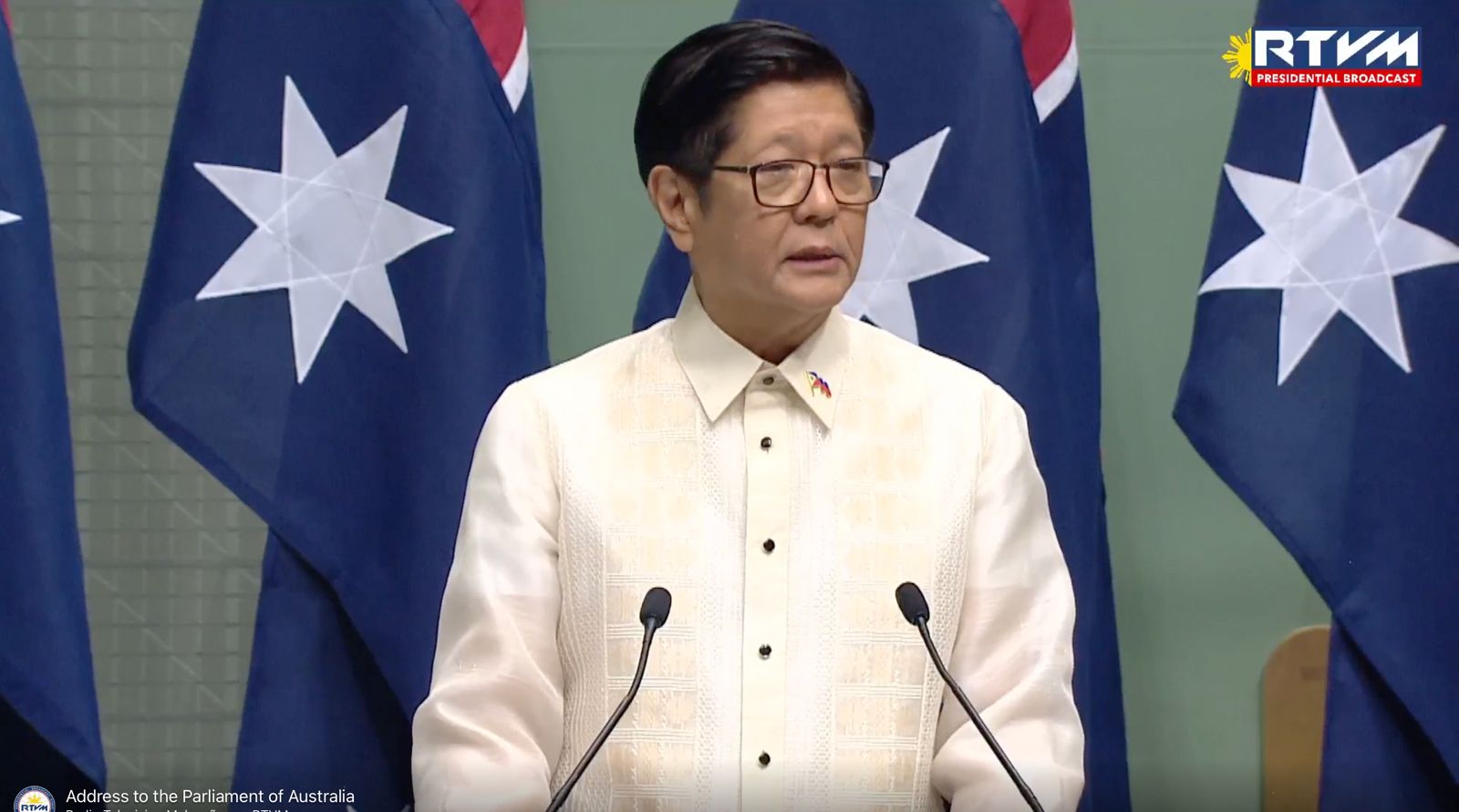
President Ferdinand Marcos Jr. addresses the Australian Parliament in Canberra, Australia, on Thursday, February 29, 2024. Photo from RTV Malacañang
President Marcos urged developed countries on Thursday to “do more” to address the threats posed by climate change, as he called an “injustice” the fact that the Philippines has been at the receiving end of its negative effects.
Speaking before the Australian Parliament in Canberra, the President affirmed the Philippine government’s commitment to achieve “carbon neutrality,” but reiterated that this effort would need the cooperation of other countries to work.
According to Marcos, the Philippines has the potential to be a net carbon sink—absorbing more carbon dioxide than it emits—but ranks first in the 2023 World Risk Index (WRI) on the most climate-vulnerable countries among the United Nations’ 193 members.
“This glaring disproportion between our share of responsibility and our vulnerability reflects an injustice that must be corrected. Developed countries must do more. And they must do it now,” he said.
President Marcos was in Australia for a two-day state visit as a guest of the Australian government at the invitation of Governor-General David Hurley, as the two countries seek to strengthen bilateral ties.
The WRI published by the Ruhr University Bochum-Institute for International Law of Peace and Armed Conflict ranked countries according to “exposure to natural disasters;” “susceptibility based on socioeconomic development;” “lack of coping capacities against social shocks, political stability, health care, infrastructure and material security” and “lack of adaptive capacities on education and research, investments and disaster preparedness.”
According to the study, the Philippines ranked first, followed by Indonesia and India. Australia was ranked 22nd.
Threat to survival
In his speech, Marcos called on Australia and the rest of the global community to work together to address climate change, which, he said was today’s “most pressing vulnerability” that “threatens the very survival of our peoples [and] our very future.”
“My country accepts its part in our collective responsibility. My administration is committed to accelerating our just, affordable, sustainable and inclusive energy transition towards carbon neutrality,” he said.
As one of the supposed proof of the two countries’ long-standing “strategic partnership,” the President cited the help extended by Australia, which he likened to Filipinos’ “bayanihan” or “mateship” for Australians, when it provided help to survivors of supertyphoon “Yolanda” (international name Haiyan) in Eastern Visayas in 2013.
He reiterated his commitment during Thursday’s state luncheon hosted by Hurley, expressing confidence in Australia’s influence on helping advance the Philippines’ position in mitigating the effects of climate change.
Marcos said that climate change and the rapid advancement of technologies compound the challenges posed by the “prevailing dynamic security environment” in the Indo-Pacific region, affecting all states and the individual lives of citizens.
“Still, I remain confident and optimistic knowing that we have a like-minded and responsible partner in Australia that shares our positive outlook and is willing, as history has shown, to exert its influence for the benefit of our region and of our peoples,” he added.